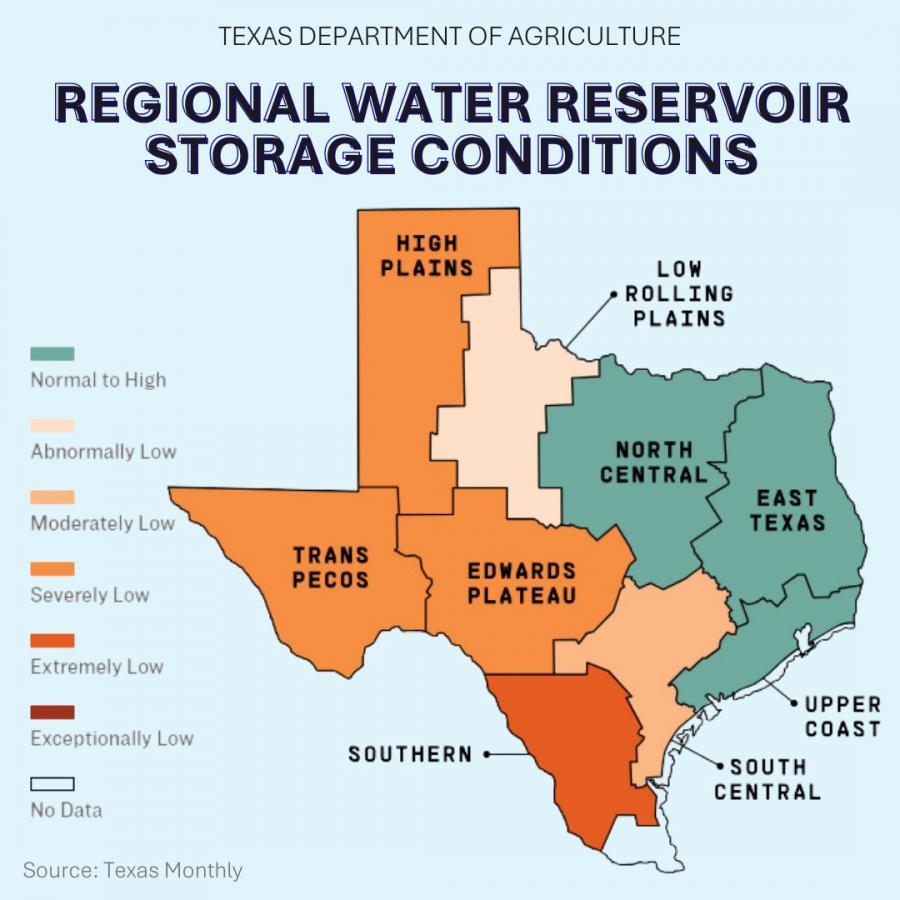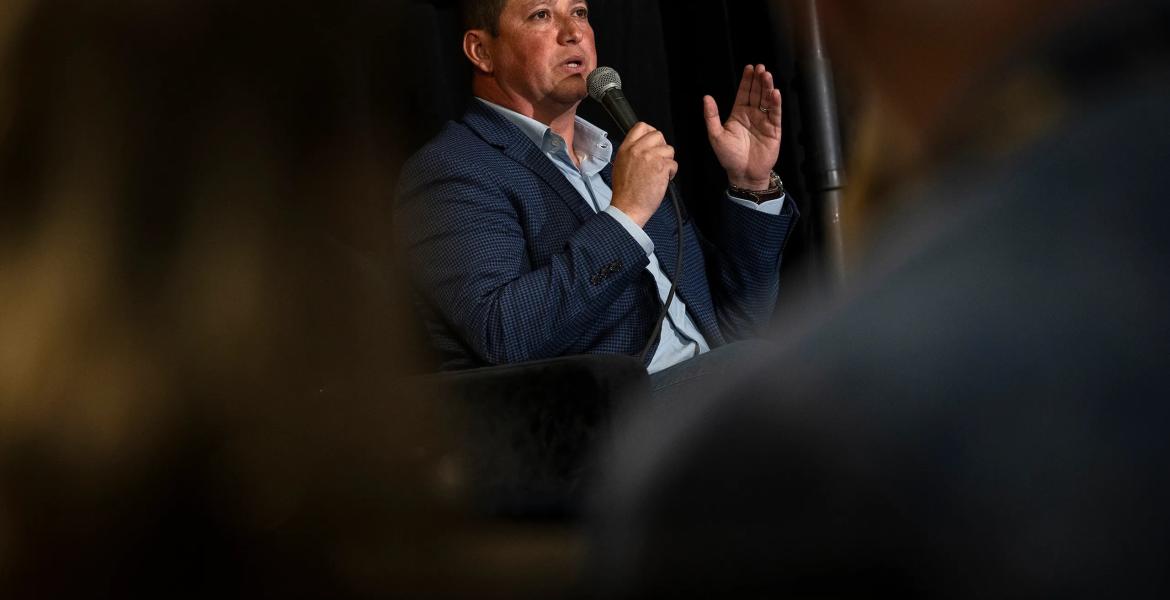SAN ANGELO, TX - Texas Agriculture Commissioner Sid Miller has raised concerns about the state’s water shortage, warning that Texas is quickly running out of water, particularly in key agricultural regions.
In an op-ed and in recent interviews, Miller outlined the severity of the problem, offering solutions while urging immediate action from both lawmakers and citizens.
Miller said that the Rio Grande Valley, a major agricultural hub, is facing dire water shortages, which have led to a drop in farm production.
“We lose about a farm a week in Texas,” Miller said, noting that water is the limiting factor. “We’re out of water, especially in the Rio Grande Valley.”

Texas Agriculture Commissioner Warns of Statewide Water Crisis
Among the solutions Miller proposed are increased stormwater capture, reusing treated water, and upgrading irrigation systems. He also supports using "brackish water," which is saltier than freshwater but less so than seawater, for agricultural purposes and oil fracking. Miller announced that a new brackish water treatment plant is set to open in Alice, Texas, this year, which will provide 2.7 million gallons of drinking water daily.
Miller pointed to the Rio Grande Valley as an area particularly affected by outdated infrastructure, which leads to significant water losses. He urged lawmakers to invest in these aging systems, which contribute to the water crisis.
Citing the lack of water, Miller highlighted the impact on Texas agriculture, using the example of Pecos cantaloupes, which are no longer grown due to dry wells.
“Everybody used to love Pecos cantaloupes,” Miller said. “You can’t find one anymore because the farmers are gone.”
Miller stressed the need for Texans to stop waiting on outside help and instead take immediate action to secure the state’s water future. He called for the state to lead in water conservation efforts, noting that federal grants and existing Texas Water Development Board funds could help finance these initiatives.
In his appeal, Miller also targeted Mexico for not honoring the 1944 Water Treaty, which he said exacerbated the water issues in Texas. He urged the Biden administration to hold Mexico accountable while emphasizing that Texas must take charge of its own water future.
The commissioner concluded that the time for action is now, warning that without swift intervention, the future of Texas agriculture—and the state’s economy—could be at risk.
Subscribe to the LIVE! Daily
Required





Post a comment to this article here: